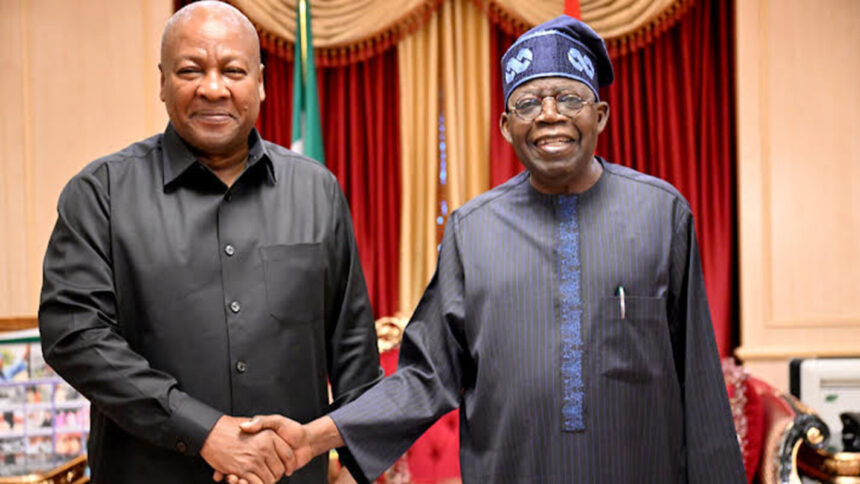Regional stability for countries bordering the Sahel nations was in focus as Nigerian President Bola Tinubu hosted his Ghanaian counter-part, John Mahama at the State House in Abuja on Thursday.
The discussions between the two leaders centered on the Economic Community of West African States’ (ECOWAS) ongoing engagements with the Sahel nations of Burkina Faso, Mali, and Niger. The three nations officially quit ECOWAS in January this year, following years of political upheavals and insecurity which have continued to threaten peace and stability in the region.
President Mahama, who has undertaken diplomatic visits to these Sahel countries, briefed President Tinubu on the outcomes of his missions. He emphasized the importance of sustained dialogue, stating, “I came to thank him for the honour done me during my inauguration and also to brief him on the visits to the Sahelian countries—Burkina Faso, Mali, and Niger—and to bring him up to date with some of the issues and to discuss with him.”
“We just need to continue to dialogue and see how we can continue to cooperate together,” the Ghanaian president added.
President Tinubu, serving as the current Chairman of the ECOWAS Authority of Heads of State and Government, commended Mahama’s efforts in bridging the divide between ECOWAS and the Alliance of Sahel States (AES).
Tinubu highlighted the necessity of ongoing engagement to ensure the security and prosperity of the region’s citizens, saying, “The innocent people in this episode are the citizens of those countries, not much about us, the leadership. The citizens must be the first beneficiaries and the first point of reason together.”
“As ECOWAS chairman, it is my duty to brief him on some of the concerns raised during those visits so that we can continue dialogue with these countries.
“We just need to find ways to keep the conversation going,” he said.
The meeting underscored ECOWAS’ commitment to diplomatic solutions amid tensions with the Sahel nations following military takeovers.
Both leaders acknowledged the complexities involved, but reaffirmed the need for continuous dialogue to address security challenges and foster economic cooperation in the region.





